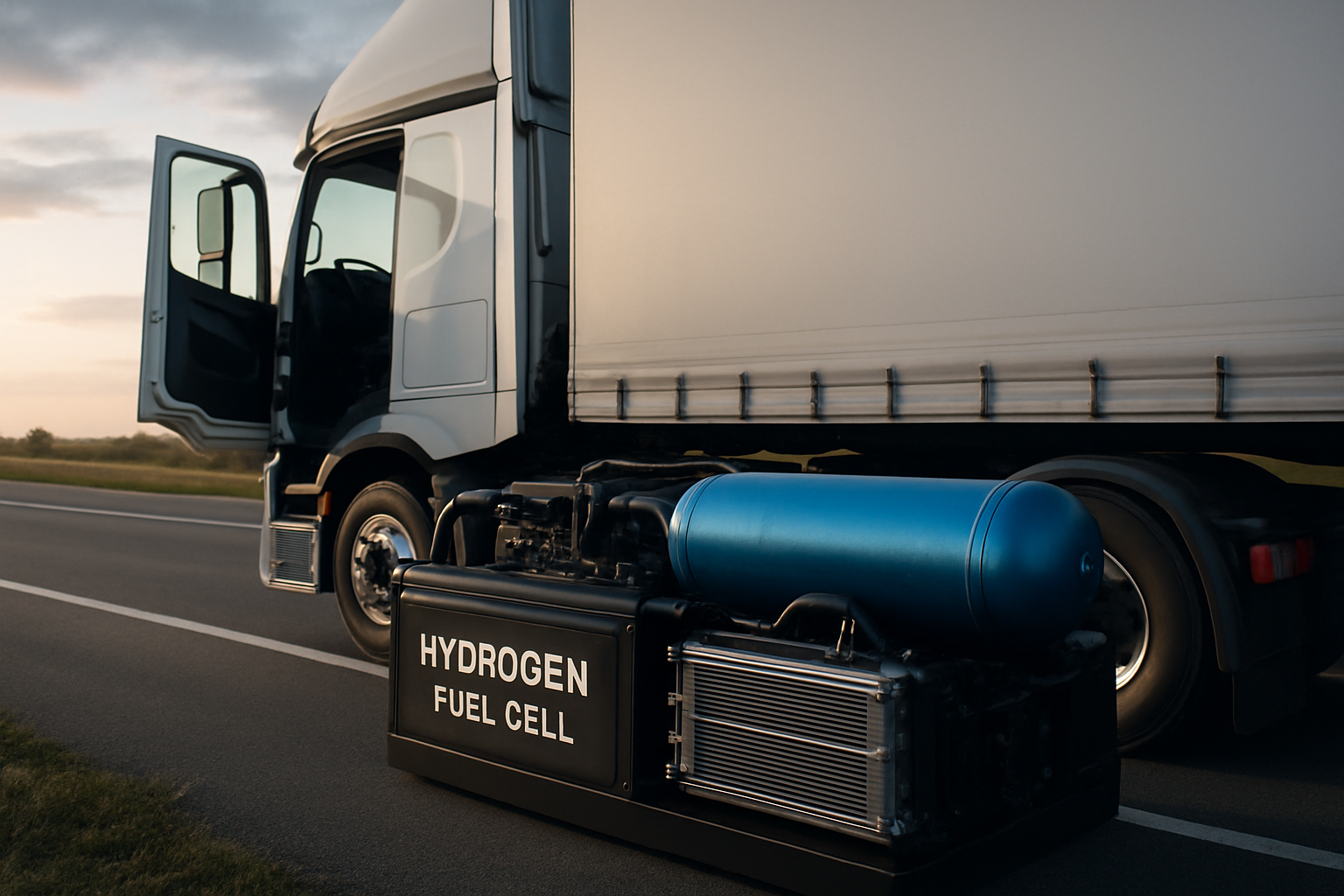Hydrogen Fuel Cells: The Quiet Revolution in Trucking
As the automotive world buzzes with talk of electric passenger vehicles, a silent transformation is taking place in the realm of heavy-duty transport. Hydrogen fuel cell technology is emerging as a promising solution for long-haul trucking, offering a compelling blend of zero-emission operation and rapid refueling capabilities. This groundbreaking approach to powering commercial vehicles is not only reshaping the trucking industry but also paving the way for a cleaner, more efficient future in goods transportation.

How Hydrogen Fuel Cells Work in Trucks
At the heart of a hydrogen fuel cell truck is a remarkable piece of technology that converts hydrogen into electricity through an electrochemical process. The fuel cell stack combines hydrogen from the vehicle’s tanks with oxygen from the air, producing electricity to power the truck’s electric motors. The only byproduct of this process is water vapor, making it a zero-emission propulsion system. This clean operation is particularly valuable in urban environments where air quality is a growing concern.
Infrastructure: The Key to Hydrogen’s Success
While the technology itself is promising, the success of hydrogen fuel cell trucks hinges on the development of a robust refueling infrastructure. Currently, hydrogen fueling stations are limited, but there’s a concerted effort across Europe and North America to expand this network. Governments and private companies are investing heavily in creating hydrogen corridors along major trucking routes. This infrastructure development is crucial for the widespread adoption of hydrogen fuel cell technology in the trucking industry.
Economic Viability and Total Cost of Ownership
One of the most critical factors in the adoption of any new technology is its economic viability. While the initial cost of hydrogen fuel cell trucks is currently higher than their diesel counterparts, the total cost of ownership over the vehicle’s lifetime is becoming increasingly competitive. As production scales up and technology improves, the cost of fuel cells is expected to decrease significantly. Moreover, with stricter emissions regulations on the horizon, the long-term economic benefits of hydrogen trucks, including lower maintenance costs and potential tax incentives, make them an attractive option for fleet operators.
Environmental Impact and Sustainability
The environmental benefits of hydrogen fuel cell trucks extend beyond their zero-emission operation. When produced using renewable energy sources, such as wind or solar power, hydrogen becomes a truly clean fuel from well to wheel. This potential for green hydrogen production aligns perfectly with global efforts to decarbonize the transport sector. As the trucking industry is responsible for a significant portion of global CO2 emissions, the widespread adoption of hydrogen fuel cell technology could play a crucial role in meeting climate goals.
Challenges and Technological Hurdles
Despite its promise, hydrogen fuel cell technology in trucking faces several challenges. The production and distribution of hydrogen need to be scaled up significantly to meet potential demand. Additionally, improving the efficiency of fuel cells and reducing their cost remains a focus for researchers and engineers. Safety concerns, particularly around the storage and handling of hydrogen, also need to be addressed to gain public and industry confidence.
The Road Ahead: Collaboration and Innovation
The future of hydrogen fuel cell trucks depends on collaboration between automakers, energy companies, and policymakers. Joint ventures and partnerships are already forming to accelerate technology development and infrastructure deployment. Innovative approaches, such as modular fuel cell systems that can be easily swapped out for maintenance or upgrades, are being explored to enhance the practicality of these vehicles in real-world operations.
A Transformative Technology for Trucking
Hydrogen fuel cell technology represents a transformative opportunity for the trucking industry. Its unique combination of long range, quick refueling, and zero-emission operation addresses many of the challenges faced by alternative propulsion systems. As infrastructure develops and costs continue to decrease, we can expect to see more hydrogen-powered trucks on our highways, quietly revolutionizing the way goods are transported across long distances. This shift not only promises cleaner air and reduced carbon emissions but also opens up new possibilities for the design and operation of commercial vehicles. The journey toward widespread adoption may be long, but the potential rewards for both the industry and the environment make it a compelling path forward.






